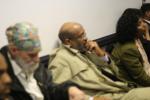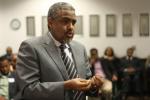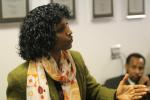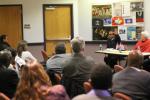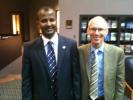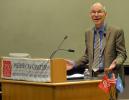
SomaliCAN
4900 Reed Road
Suite 331
Columbus, OH 43220
United States
ph: (614) 489-9226
info
- Home

- Somali Translation

- Haldoor: Civic Leadership Program
- Somali Graduation

- 2018 Somali Graduation & Scholarship
- 2017 Somali Graduation and Scholarship
- 2016 - 7th Somali Graduation & Scholarship
- 2015- 6th Annual Ohio Somali Graduation and Scholarship Program
- 2014 - 5th Annual Graduation
- 2013 - 4th Annual Graduation
- 2012 - 3rd Annual Graduation
- 2011 - 2nd Annual Graduation
- 2010 - 1st Annual Graduation
- HigherEd Resources
- CelebrateOne
- Events
- Resources
- Leadership Profiles

- Contact Us
Anita Waters
Anita Waters, Ph.D.
Director of Development & Research
anita@somalican.org
Congratulations to our Director of Development and Research, Dr. Anita Waters, whose work was featured by the American Sociological Association. We are grateful to you for your leadership and dedication to developing Somali civic participation and leadership.
http://www.asanet.org/sociology-action-anita-m-waters
Anita M. Waters, Denison University Department of Anthropology & Sociology, is partnering with Somali Community Access Network (SomaliCAN) in Columbus, OH. ASA asked Waters about that work and here is what she had to say:
How did you connect with SomaliCAN? I first connected with SomaliCAN in 2009, when I had several students who wanted to conduct their senior research about African topics. Columbus is home to the second largest Somali-American population in the US, and SomaliCAN helped us find informants and understand the community. I’ve worked with SomaliCAN ever since.
What is the mission of Somali CAN? SomaliCAN is a community-based, refugee self-help organization whose mission is to foster the economic, social, and political empowerment of the Somali-American community, through projects in community health, education, organizing civic participation forums, and interpretation/translation services. An annual project is a graduation celebration for students of Somali descent throughout the area.
Can you describe the project in more detail? As a new professor emerita, I have joined SomaliCAN as its Director of Research and Development. One of the projects that we are working on is the Haldoor Program. Haldoor is a Somali word meaning “select,” or “change-maker;” I compare it to WEB DuBois’ concept of the “talented tenth.”
The goals of the program are as follows:
- Train a cohort of 20 young Somali-American college students or recent graduates in summer 2018 to take leadership positions in their workplaces and communities.
- Create a team of trained Somali-American college students and graduates to mentor Somali-American high school juniors and seniors in September through November, 2018.
- Create a network of college and high school students, as well as other professionals, who are committed to the mutual success of other members of the network and who interact regularly, virtually or in person.
- Improve the college student cohort’s leadership skills, including oral and written communication, values exploration, goal-setting, understanding American economic and governmental institutions, and knowledge about the social studies of immigration and immigrants in the United States.
- Improve the rates of attendance and graduation for mentored high school juniors and seniors from ten high schools.
The intervention that we have planned includes providing:
- Education about American economic and governmental institutions, the history and sociology of immigrant groups in the United States, and effective strategies for incorporation into social, political and economic institutions.
- Training in leadership skills that will enable this group to mentor high school students effectively and to found a network of young people who are passionate about and engaged in their community.
- Near-peer role models for high school juniors and seniors, who can help them make attain academic success in terms of school attendance, high school graduation, college admissions, and ultimately leadership in the classroom, in the community and in the workplace.
What sociological knowledge and/or skills did you use for this project? In making arguments to funding agencies for the value of this project, I have drawn on the literature of sociology of education, of immigration, and of race and ethnicity. I used concepts from qualitative methodology to argue for the rigor of our methods of evaluation of the effectiveness of our summer training program. One of the workshops that we have planned for the college student cohort, which I especially look forward to, will focus on the sociology of first- and second-generation Americans. In that workshop we will study some of the major theoretical perspectives from the literature on immigration and discuss some concrete empirical cases, comparing these to the Somali-American experience.
Duration of the project? Nine months, but I hope we can continue the project into the future.
Is there anything else you would like to share about this work? Most of my career I have studied Caribbean society and culture, and my inspiration for this work is Walter Rodney, the Guyanese historian who taught African history to community members in the 1960s, which is the basis of his book, Groundings with my Brothers.
SomaliCAN
4900 Reed Road
Suite 331
Columbus, OH 43220
United States
ph: (614) 489-9226
info

